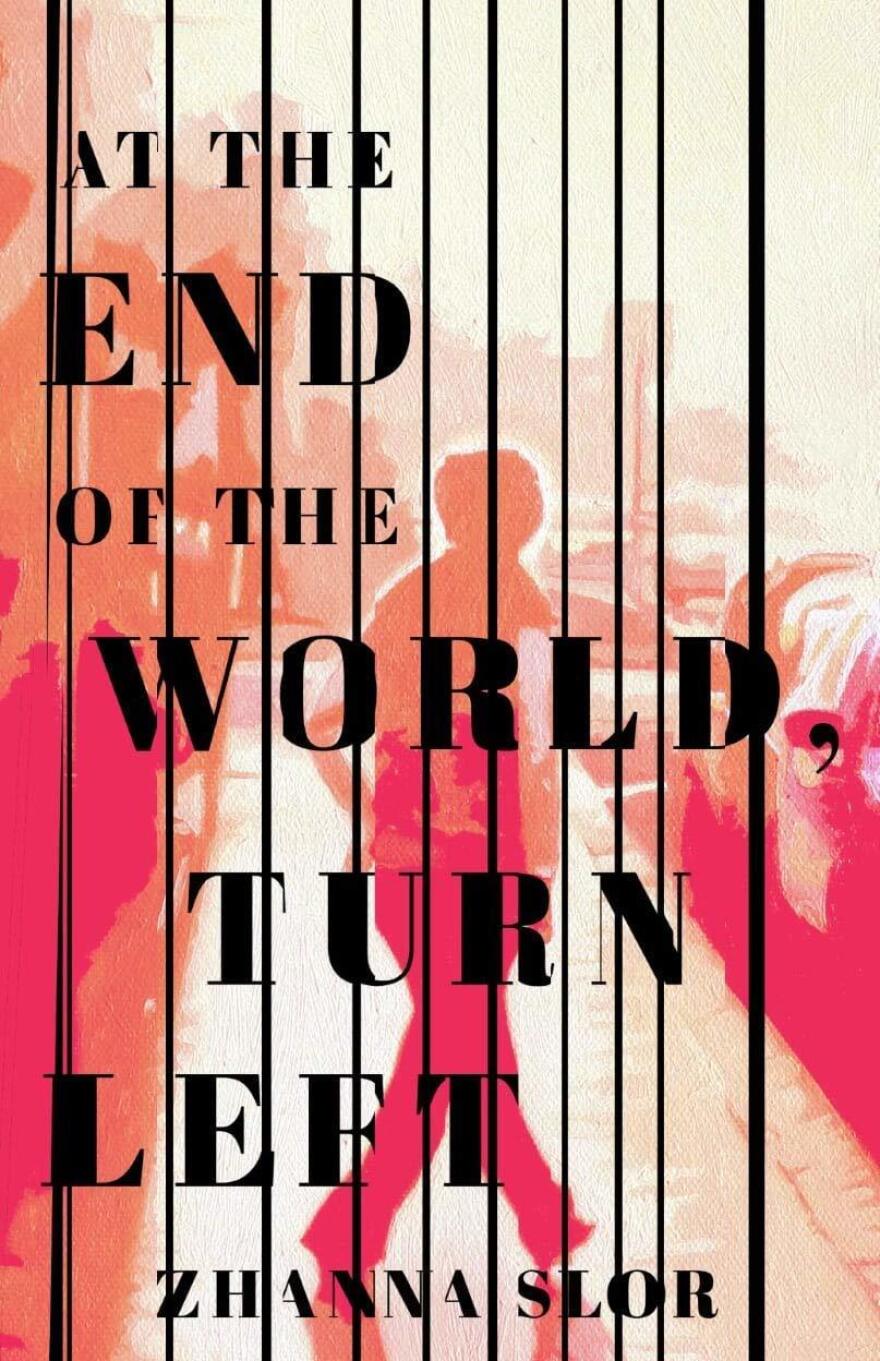A few excellent novels visit Milwaukee (notably Neil Gaiman's American Gods and The Story of Edgar Sawtelle by David Wroblewski), but it's not a well-known literary hotbed. Perhaps that should change, because not only does this American city have stories to tell, but its Riverwest neighborhood, full of angst and creativity, is the setting of Zhanna Slor's debut novel At the End of the World, Turn Left.
Masha and Anna are sisters, born in Soviet Ukraine, whose parents immigrated with them to the United States when Masha was six and Anna (Anastasia) still a baby. While their parents were glad to leave using their Judaism as an exit strategy, the family is almost wholly secular — until Masha makes aliyah to Israel on a Birthright airplane ticket, falls in love with the country, and then falls in love with a man named David. She happily melts into a place filled with sunshine, easy manners, and Jewish culture, to the point of regaining many of its religious rituals.
When her father calls and asks her to return home because Anna, just 16, has disappeared, Masha is torn. She's afraid that she'll be pulled back into family drama, afraid that she'll miss David too much, afraid that she won't be able to keep up her comforting new routine. She prays over a cup of takeout coffee. She warns her father she'll be turning off her cell phone for all of Shabbat. Her new boundaries may be faith-based, but they're also effective at allowing her to keep her distance from the sad situation she discovers between her parents.
Masha's chapters take place in 2008, Anna's in 2007 — after and before the younger woman's disappearance. The unusual juxtaposition, in which "after" comes first, is important in Slor's winding narrative of why and how this little family has fractured into four pieces, like a plate thrown against a wall. Masha's father asks her for help finding her sister because she knows the least, and he fears the worst — while Anna has experienced household desolation, and is looking for her own form of family among the junkies, musicians, and trainhoppers of Riverwest.
Despite the six years between the sisters, both know a few of the same characters on the seedy streets that accommodate lots of apartment squatters and slightly dangerous bars and clubs. Slor, herself a Russian Jewish immigrant who grew up in Milwaukee, is particularly effective when describing characters like Liam, with his wild hair, plaid boxers, and tattoos, and uncommonly tall Phil, whose blue eyes match his blue hair.
It's not that Masha or Anna wants to live in Riverwest forever; it's that Riverwest is one of the few places they know that offers a different version of life to these smart young women who both have their own aspirations. Masha, fascinated by linguistics, peppers her narratives with words from global tongues, like "... Ei viitsi, which means a feeling of such intense laziness you don't want to go anywhere or do anything" in Estonian. Anna, in the middle of college at the University of Wisconsin-Milwaukee, wants to be a visual artist, something her parents disparage regularly.
It's rare to find a debut mystery crafted with such elegance and authenticity, let alone in a place that has been so neglected as a literary location.
As Masha searches for Anna, Anna has been searching for someone else, a woman online who claims to be her "sistra" (a Russian diminutive that can mean sister, or cousin). Slor's skillful braiding of the two quests not only cranks up the suspense, but also highlights the inevitability and sadness of siblings growing apart. Masha loves her younger sister, but still knows her own life lies on a different continent. It's in stark contrast to her parents, who brought her father's parents with them when they left the Soviet Union. Wherever Masha and Anna end up, their own choices and preferences will have led them there, a fact poignantly underscored when their grandmother (who has some dementia), says to Masha, in a rare moment of lucidity, "You live in Israel? Bozhe moy. What a thing to do to your parents."
Anna's fate will definitely surprise readers. It's rare to find a debut mystery crafted with such elegance and authenticity, let alone in a place that has been so neglected as a literary location. Slor's next novel will be one to anticipate.
Bethanne Patrick is a freelance writer and critic who tweets @TheBookMaven.
Copyright 2021 NPR. To see more, visit https://www.npr.org.



